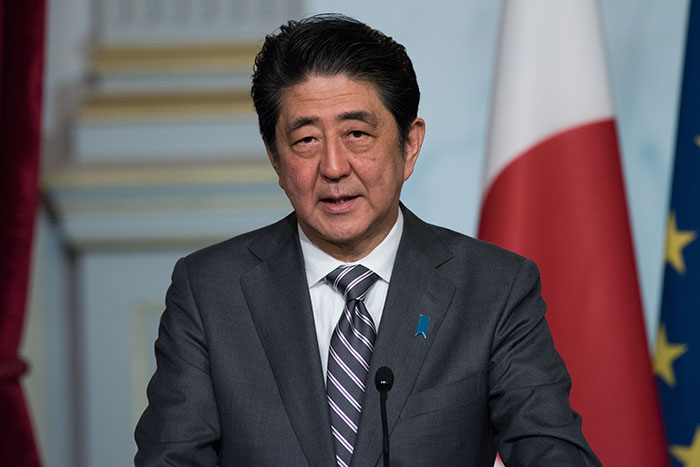web_shinzo-abe_shutterstock_415949860.jpg

Japanese prime minister Shinzo Abe. The fund's report said his economic programme had been a success.
The lender warned that the withdrawal of fiscal stimulus, scheduled for 2018 under current policies, combined with a scheduled income tax rise would see growth weaken. It currently predicts the country’s economy will grow by 1.3% this year and 0.6% in the next.
That first figure is driven by prime minister Shinzo Abe’s economic programme, known as Abenomics, which has been working to revive the country’s sluggish economy since 2012.
The fund’s report praised this policy package, which it said had proven successful in easing financial conditions, increasing corporate profits and boosting employment.
However, the IMF highlighted, that means “growth is grounded” in temporary fiscal stimulus, as well as some external conditions.
Government spending has filled a gap left by faltering domestic demand, but this has yet to recover as a result of stubbornly low wages.
The country also has one of the highest levels of public debt in the world at more than twice the size of the country’s entire economy.
“Given this context, we feel the best policy is to make the most of positive momentum and push ahead with needed reforms,” said IMF deputy managing director David Lipton.
He called for labour market reforms, including closing the gaps between regular and non-regular workers, increasing mobility across firms and “equal pay for equal work”, all of which had said would boost the wages seen as key to unlocking better growth for Japan.
Lipton also said it was important to “diversify and enhance labour supply”, with particular focus on support for women and older people in the labour market.
“This means eliminating disincentives to work full time in the tax and social security systems, increasing availability of childcare and nursing facilities and reducing excessive overtime,” said Lipton.
“Income policies – such as increasing administratively controlled wages and incentivising private firms to raise wages – should complement and amplify monetary and fiscal support,” he added.
Also on the fiscal side, the fund said steady efforts are needed to contain public debt.
To balance this with the need to boost spending, it said the approach should be gradual, with an annual reduction in the underlying deficit, also excluding debt repayments, of around 0.5% of GDP.













